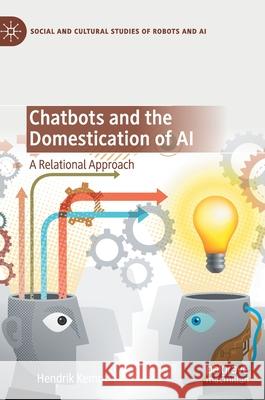Chatbots and the Domestication of AI: A Relational Approach » książka
topmenu
Chatbots and the Domestication of AI: A Relational Approach
ISBN-13: 9783030562892 / Angielski / Twarda / 2020 / 183 str.
Kategorie:
Kategorie BISAC:
Wydawca:
Palgrave MacMillan
Seria wydawnicza:
Język:
Angielski
ISBN-13:
9783030562892
Rok wydania:
2020
Wydanie:
2020
Numer serii:
000828121
Ilość stron:
183
Waga:
0.39 kg
Wymiary:
21.01 x 14.81 x 1.27
Oprawa:
Twarda
Wolumenów:
01
Dodatkowe informacje:
Wydanie ilustrowane











